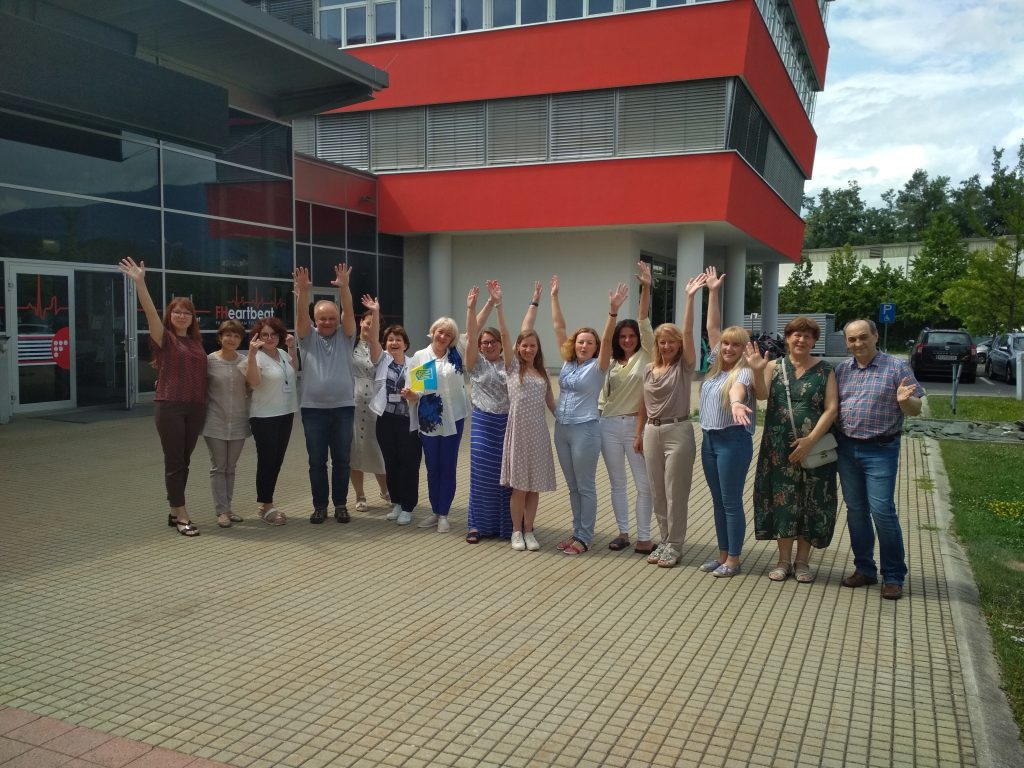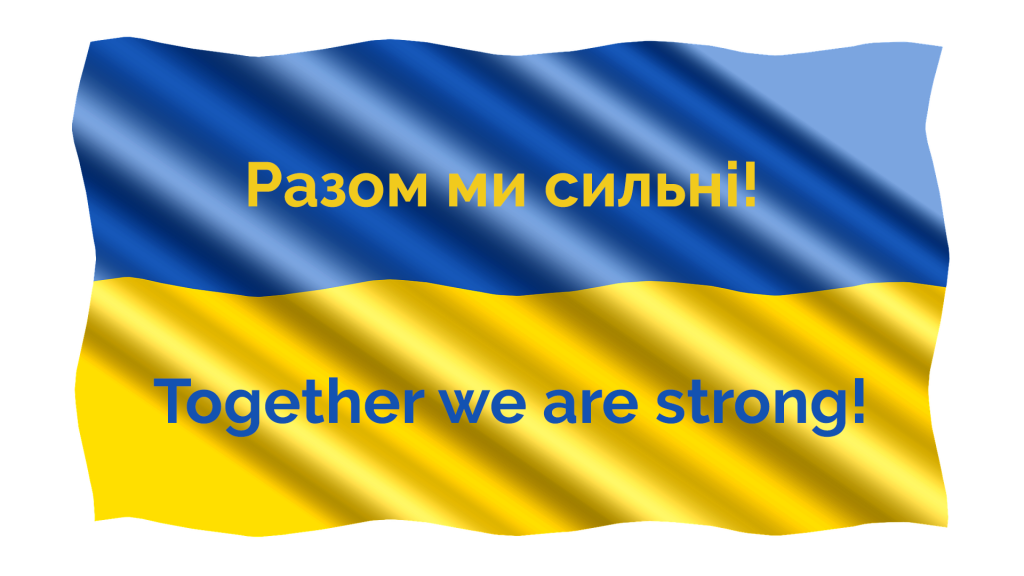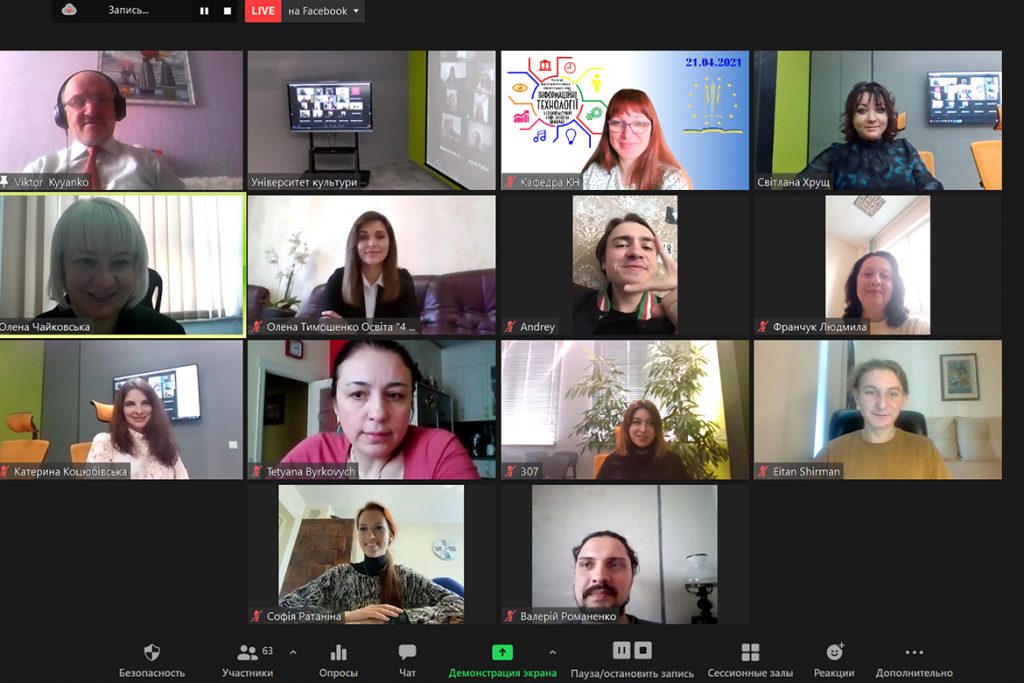3 years after the completion of the dComFra project, we would like to share our implementations and achievements once again.
Standards implemented at the level of the state of Ukraine, developed by the dComFra consortium:
1. UA DigComp framework for citizens.
The framework was fully developed by the project consortium. It has been agreed with all interested public authorities, representatives of professional communities and business. After making minor adjustments, it was published by the Ministry of Digital Transformation of Ukraine in 2021. (UA DigComp framework for citizens).
The Ukrainian Association of IT Professionals and the Ukrainian coordinator, Taras Shevchenko National University of Kyiv, played a key role in its creation and approval.
2. UA DigCompEdu framework (Conceptual and Reference Framework for Digital Competence of Pedagogical and Academic Staff).
The framework was fully developed by the project consortium. It has been agreed with all interested public authorities, representatives of professional communities and business. After making minor and specific for the Ukrainian educational environment corrections, it was published by the Ministry of Digital Transformation of Ukraine in 2021. (UA DigCompEdu framework).
The Ukrainian Association of IT Professionals and Taras Shevchenko National University of Kyiv played a key role in its creation and approval.
3. Digital competence profiles to refine the national qualifications framework.
The digital competence profiles were fully developed by the project consortium. Together with the National Qualifications Agency and the expert community, they were implemented in the narrative part of the new national qualifications framework. The Ukrainian Association of IT Professionals and Taras Shevchenko National University of Kyiv played a key role in their development and implementation.
4. ICDL Ukrainian digital citizen.
National digital skills test for the national platform Diia.Education, part of the Digigram developed by the Ukrainian Association of IT Professionals with the involvement of experts from the National Technical University ‘Kharkiv Polytechnic Institute’, Taras Shevchenko National University of Kyiv and Kyiv National University of Culture and Arts.
The standards implemented at the level of the state of Ukraine are based on the framework developed by the dComFra consortium and with the involvement of dComFra experts:
1. Digital Competence Framework for Civil Servants of Ukraine.
The Framework was developed by a specially created expert group, which included representatives of the project consortium, namely the Ukrainian Association of IT Professionals, Taras Shevchenko National University of Kyiv and Kyiv National University of Culture and Arts. The framework was developed on the basis of the UA DigComp framework for citizens. Published by the Ministry of Digital Transformation of Ukraine in 2021. (Digital Competence Framework for Civil Servants of Ukraine).
2. Digital competence framework for Ukrainian entrepreneurs.
The Framework was developed by a specially created expert group, which included representatives of the project consortium, namely the Ukrainian Association of IT Professionals, Taras Shevchenko National University of Kyiv and Kyiv National University of Culture and Arts. The framework was developed on the basis of the UA DigComp framework for citizens. Published by the Ministry of Digital Transformation of Ukraine in 2021. (Digital competence framework for Ukrainian entrepreneurs).
A digital learning and skills acquisition system for digital competencies developed by the dComFra consortium:
The system (Dole: Digital office learning environment) was developed by the project consortium. The system is hosted and maintained by Taras Shevchenko National University of Kyiv (https://dole.fit.knu.ua). The system has been implemented in the educational process of all Ukrainian universities – partners of the dComFra project (Taras Shevchenko National University of Kyiv, National Technical University ‘Kharkiv Polytechnic Institute’, Kyiv National University of Culture and Arts, Donetsk National Technical University, Kharkiv National University of Radio Electronics, Yuriy Fedkovych Chernivtsi National University, Kremenchuk Mykhailo Ostrohradskyi National University).
All partner universities use the system in the educational process in various areas of information technology, such as databases, web programming, basics of information technology, etc. In addition, for example, at Taras Shevchenko National University of Kyiv, individual modules of the system are used in the following disciplines: ‘Modern Information Systems in Economics’ for the specialities of Economics, Management, Marketing, Finance, Banking and Insurance, Entrepreneurship, Trade and Exchange Activities; ‘Philosophy of Science and Innovation’, the module “Search and Processing of Scientific Information” for the speciality of Journalism; ‘Philosophy of Science and Innovations, module ‘Management of Scientific Projects and Fund-Raising’ for the speciality ‘Philology’; Information and Communication Technologies in the Management of Educational Systems for the speciality ‘Higher Education Pedagogy’; etc. All training on the system’s modules takes place directly in the Digital office learning environment.
Most partner universities use the system to improve the skills of their academic and administrative staff. School teachers and other target groups of the dComFra project are trained as well, with the best results being shown by the Ukrainian Association of IT Professionals. In total, as of 1 January 2025, almost 4,000 people have acquired digital skills through the dComFra digital office learning environment modules. The statistics are shown in the table below












